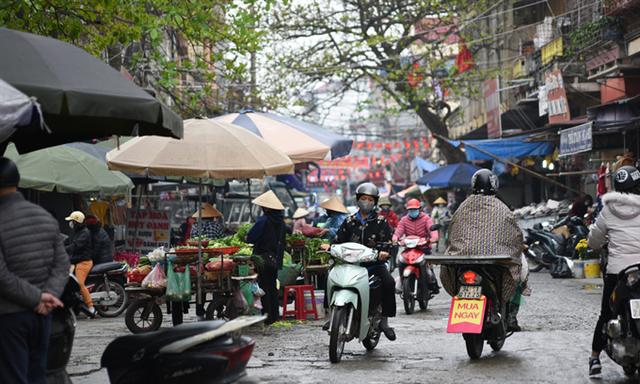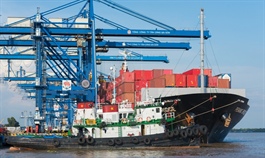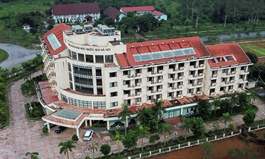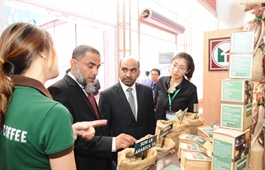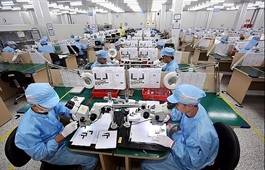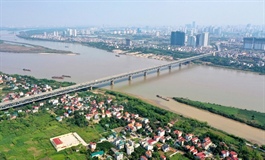Vietnam faces ‘low level’ Covid-19 impact risks: report
Vietnam faces ‘low level’ Covid-19 impact risks: report
Vietnam’s handling of the pandemic has meant that its business operations and other domestic activities are exposed to low risk levels from Covid-19 impacts.
Sao Do Market in Hai Duong Province, Vietnam's Covid-19 epicenter, resumes operation on March 5 2021 after a month of lockdown. Photo by VnExpress/Than Hoang.
|
This is a conclusion reached by the 2021 annual Travel Risk Map released by International SOS, a travel security services company based in the U.K.
The interactive map ranks countries' level of safety across three main criteria: medical services, security and Covid-19 domestic operation impacts.
The Covid-19 domestic operations impact scale represents the impact of the pandemic on operations within a certain location, analyzing factors such as health and security threat environment, recent Covid-19 case activity as well as trends of new cases, local travel restrictions, mitigation measures in place and the efficacy of mitigation measures as of March 13.
At a low level, Covid-related precautions and restrictions cause some inconvenience to business operations but most businesses are still operating, the company notes in its report.
Vietnam has had to deal with a new wave of Covid-19 since Jan. 28 after a streak of 55 days without community transmissions, but it has sought to avoid deleterious socioeconomic impacts of a nationwide lockdown. Instead, local social distancing measures are being applied in areas hard hit by the pandemic, the report adds.
Thanks to better containment of the Covid-19 outbreak, local travel restrictions and lockdowns on many areas have been lifted.
In Southeast Asia, Cambodia, Thailand, Singapore and Laos have recorded low impacts of the pandemic on domestic operations while Indonesia and the Philippines have been affected at a 'medium level.'
Vietnam's travel security risk has been classed as "low" with hardly any violent crime as well as unrest.
In Southeast Asia, Laos, Cambodia, Indonesia, and the Philippines are "not completely safe" with a "high" travel security risk while Singapore and Brunei are the safest places to travel, the report says.
In terms of medical care, Vietnam is ranked as having "variable risk," which means major cities may have better access to quality medical care, while remote or rural locations may have limited availability of health facilities and specialist care.
Exposure to food, water-borne or potentially life-threatening infectious diseases may also vary.
The company measures countries' medical risks based on a range of health and mitigating factors, including infectious disease, burden environmental factors, medical evacuation data, road trauma data, standard of emergency medical services, outpatient and inpatient medical care, access to quality pharmaceutical supplies, and cultural, language or administrative barriers.
Myanmar, Laos, Cambodia have "high level medical risks," the report said.


